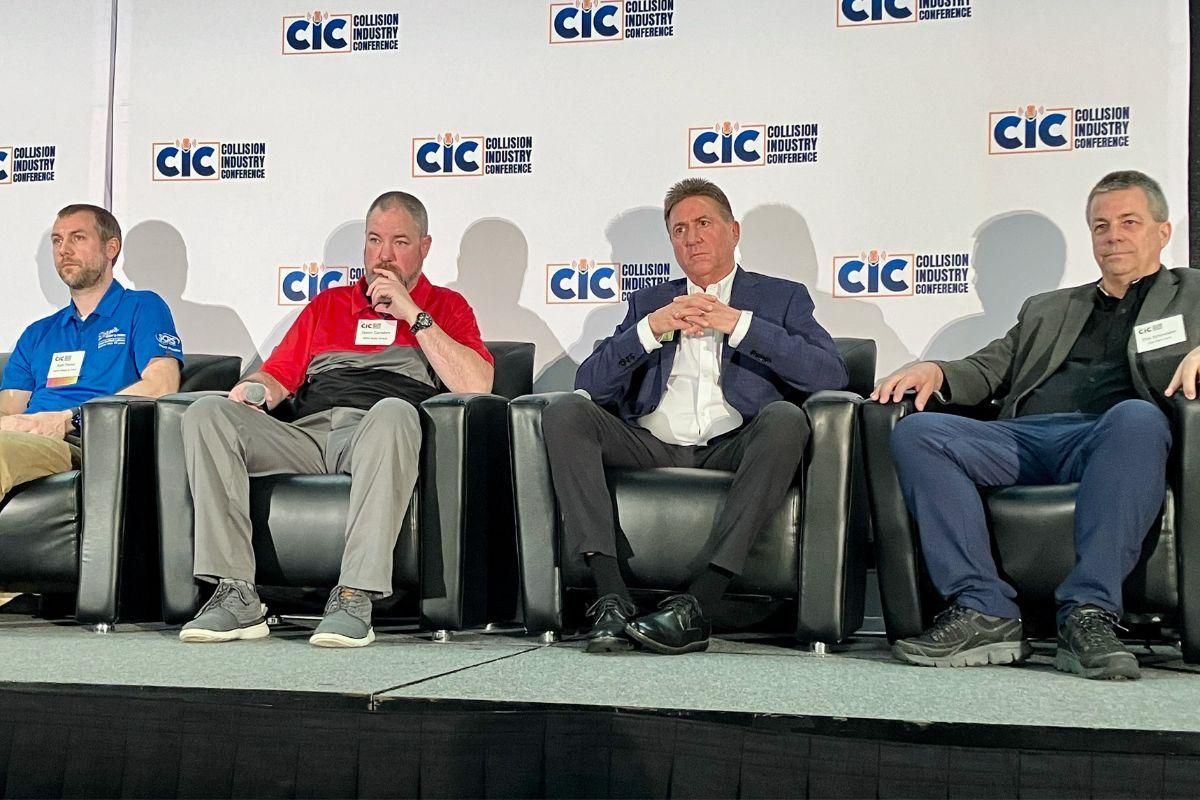Representatives of collision repair businesses and parts suppliers shared some of the current challenges they see related to parts sourcing and fulfillment as part of a panel discussion during the Collision Industry Conference (CIC) in Richmond, VA, just prior to the start of the annual Southeast Collision Conference.
Parts buyers and sellers alike expressed frustration with learning only at the time of parts ordering that the shop isn’t eligible to purchase some needed parts, because they are restricted to repairers certified by that particular OEM.
“The restrictive parts situation has been ongoing for many years,” Danny Gredinberg of the Database Enhancement Gateway told the panel during the question and answer session at the end of the panel discussion. “I can recall 10-plus years ago when we would get a vehicle towed in from another shop, 95% assembled, because they couldn't get that one last part needed.
“So my challenge to the information providers is this: Why can't we get that information up front in the databases, so that way we can be more aware so that way we know what we can order, what we cannot order?” Gredinberg said. “That will let the shops who are not certified aware of what they're getting themselves into.”
The CIC Parts and Materials Committee was just one of a handful of panel discussions during CIC in Richmond.
The Estimating and Repair Planning Committee discussed some of the limited options the industry has for training a new “repair planner,” a role made ever more challenging to fill given the increased complexity of vehicle technology.
 The Collision Industry Conference was held over two days in Richmond, VA.
The Collision Industry Conference was held over two days in Richmond, VA.
The Talent Pool & Education Committee offered a panel discussion on building a positive shop culture that fosters loyalty, motivation and long-term career growth. A panel organized by the CIC Governmental Committee session looking at multiple views of the topic of shop licensing, including various types of licensing requirements.
The CIC Emerging Technologies Committee shared insights from companies specializing in ADAS calibration identification to address some of the myths and realities related to calibration requirements. A key message from the panelists: The tools being used in the industry to identify what ADAS calibrations are likely necessary are getting better, but they still should be considered a starting point, using OEM information and visual inspection of the vehicle to confirm.
Two representatives of cybersecurity company offered the latest presentation at CIC on that subject, something the Data Access, Privacy and Security Committee has been focused on for several CIC meetings in a row.
The speakers offered strategies to prevent, detect and respond to cyber attacks, using a fictional scenario about how “Lucky Bob’s Bodyshop” found itself the target of ransomware.
Their key message: There are risks and costs associated with either paying a ransom or not paying a ransom, so making some ongoing investment in preventative measures is often the best strategy.
The CIC Repair Processes and Procedures Committee held a panel discussion returning to the long-standing issue of clearcoat of full panels versus blending.
The meeting also offered a look ahead to the CIC being held in Philadelphia in July. CIC Chairman Dan Risley said he’s asked CIC committees to all focus on the topic of total losses in their presentations and panel discussions in July.
Risley and Industry Relations Committee Chairman Aaron Schulenburg introduced a new format the committee will roll out at the July meeting. Rather than a panel discussion providing a variety of perspectives on a topic, the Industry Relations Committee will present a more in-depth one-on-one onstage interview with a single speaker who will share what the committee hopes will be thought-provoking views and ideas.















John Yoswick